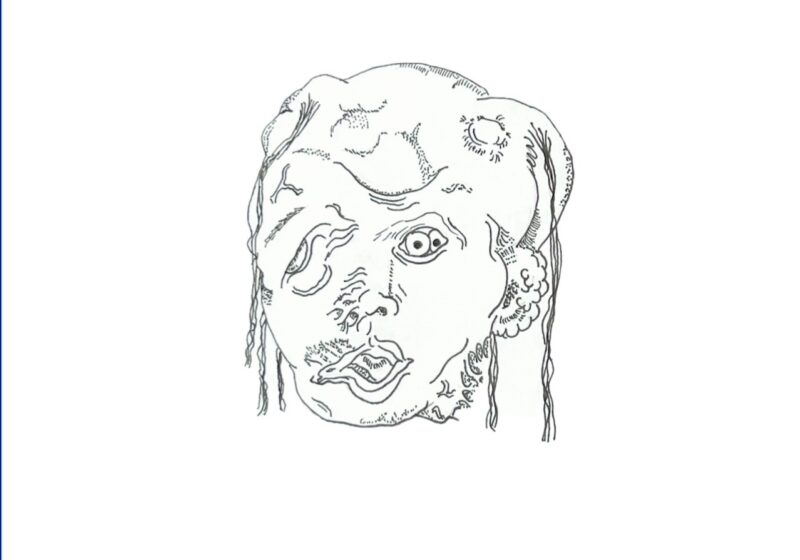I found it really hard to take “The Beach Boys” seriously before high school ’cause I’d only ever heard their big hits like “Surfin USA” or “California Girls.” I guess you could say it’s because I closely associated them with cheesy pre-holiday break celebrations in elementary school where they’d blast Bing Crosby and a ton of other department store Christmas carol bullshit. No matter the reason, I thought their barbershop quartet angle was cheesy, their constant falsetto annoying, and never felt a reason to turn them on when I could just listen to The Beatles instead.
And then I heard “Pet Sounds.” I’ve been a really big Beach Boys fan ever since.
Masterminded by songwriter and producer Brian Wilson, “Pet Sounds” is often called the greatest record of all time, but I feel like this label has actually undermined the music itself. When people write about “Pet Sounds,” its influence and technical innovation often become the focus, instead of the transcendent and deeply relatable aspects of the music.
More than its status as legitimizing rock in the eyes of the public, the record is a monument to the hardships of growing up, and transforms the momentary pain of life into something permanent and sublime: a monument to our collective experience.
How does the record do it? Melancholy.
On a first listen, “Pet Sounds” may seem simply like a positive piece of art. The Boys sweetly harmonize together on most songs, the instrumentation is bright and diverse, and many of the melodies themselves sound upbeat. However, under this sweet veneer are lyrics about the fear of growing up, not belonging in your own skin, and the loss of innocence and love to aging. This synthesis of upbeat music and downtrodden lyrics created a melancholy that feels like the experience of growing up. It can be overwhelming and anxiety-inducing, but often beautiful and dynamic at the same time, much like the music of “Pet Sounds.”
Take the second track on the album, for example. “That’s Not Me,” which is anchored by driving percussion and a heart-wrenching vocal performance from Beach Boy Mike Love, explores the anxiety of leaving home to pursue a lifelong dream, only to realize it was all in vain. Take a look at the lyrics — they express this sentiment better than I ever could:
“My folks when I wrote them told ’em what I was up to
Said that’s not me
I went through all kinds of changes, took a look at myself
And said that’s not me
I miss my pad and the places I’ve known
And every night as I lay there alone
I would dream”
I remember feeling similarly during my first year at UR. I began to second guess my life’s path in coming to study here, and was worried that the decision just wasn’t me. Luckily, this place has somehow grown on me, but “That’s Not Me”immortalizes those earlier feelings of hesitation that I and so many others felt when pursuing their dream in a new place.
My favorite track on the record, “I Just Wasn’t Made For These Times,” is a perfect representation of how being lonely or misunderstood feels. Brian Wilson’s vocal performance here is full of pain, and so is the baroque arrangement that supplements it. The lyrical content, like the rest of “Pet Sounds,” is relatable as hell.
“I keep looking for a place to fit
Where I can speak my mind
And I’ve been trying hard to find the people
That I won’t leave behind
They say I got brains but they ain’t doing me no good
I wish they could
Each time things start to happen again
I think I got something good goin’ for myself
But what goes wrong
Sometimes I feel very sad
Sometimes I feel very sad
(Can’t find nothin’ I can put my heart and soul into)
Sometimes I feel very sad
(Can’t find nothin’ I can put my heart and soul into)
I guess I just wasn’t made for these times”
I often find myself listening to this song when I feel lonely. Not because it feels good to feel lonely or anything, but because the song is so on point with its lyrical and musical portrayal of the emotion that I can’t help but feel totally understood when I hear it.
The album’s closer, and one of the most heartbreaking songs in the Beach Boys catalogue, is “Caroline, No.” This is the only track on the record to feature a solo vocal performance from Brian Wilson, so it feels even more personal than any song on the record, yet still carries a fundamentally relatable message. Lyrically, Brian is expressing his sadness at seeing how his old love interest has lost her innocence to the march of time.
“Where did your long hair go?
Where is the girl I used to know?
How could you lose that happy glow?
Oh Caroline, no
Who took that look away?
I remember how you used to say
You’d never change, but that’s not true
Oh Caroline, you
Break my heart
I want to go and cry
It’s so sad to watch a sweet thing die
Oh Caroline, why?”
While I don’t agree with Brian’s dislike of short hair, the song is still harrowing in its expression of the death of innocence to time. The loss of innocence and beauty over time is a universally human problem, and “Caroline, No” represents it perfectly with its beautiful baroque arrangement and heartbreaking lyrics.
While our personal experiences of growing up will be lost to time, “Pet Sounds”will reverberate through the universe forever, acting as a monument to the hardships of growing up and the human experience as a whole.





